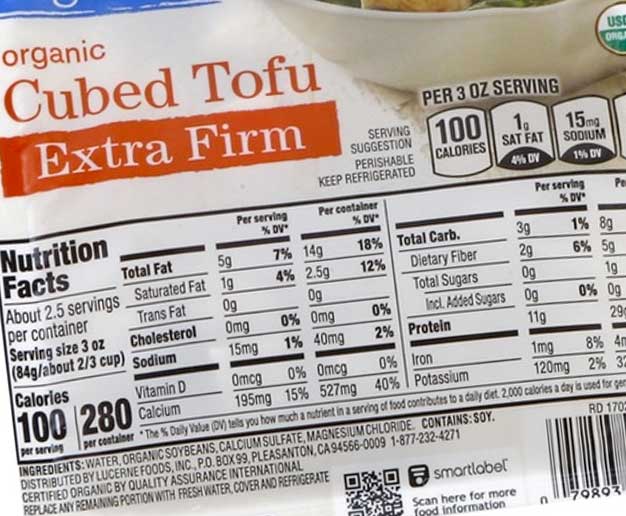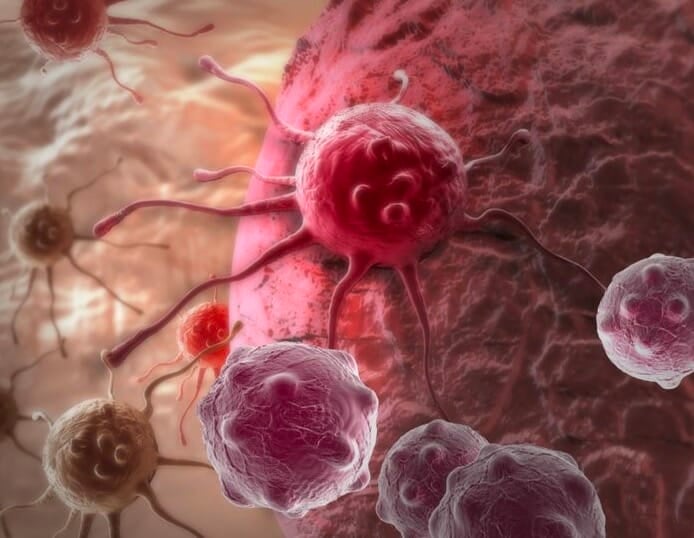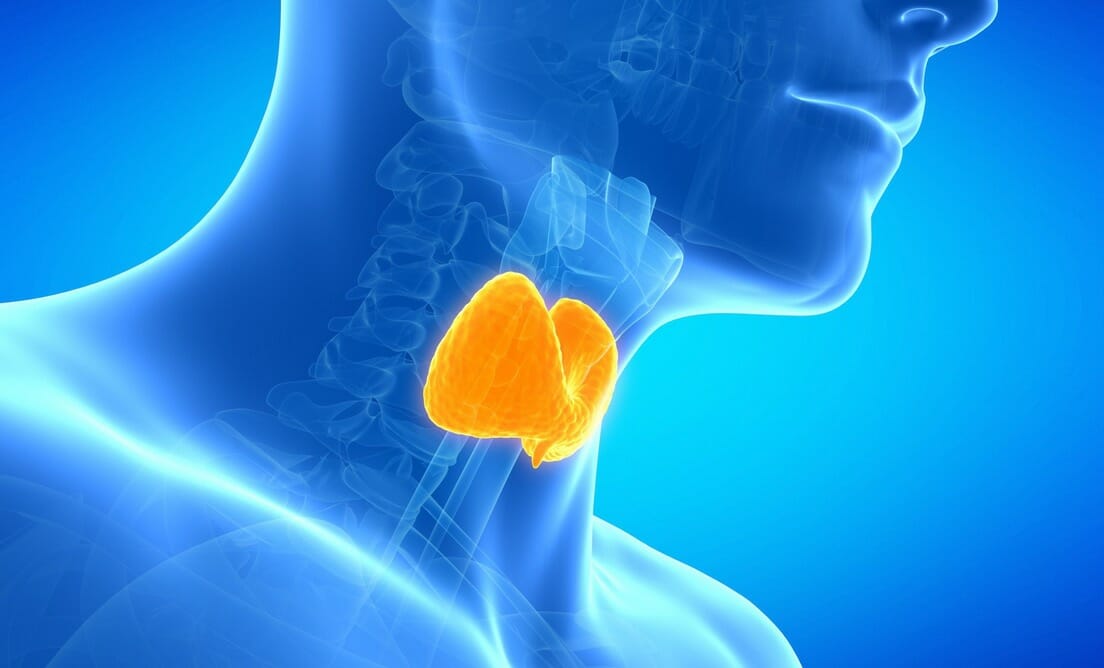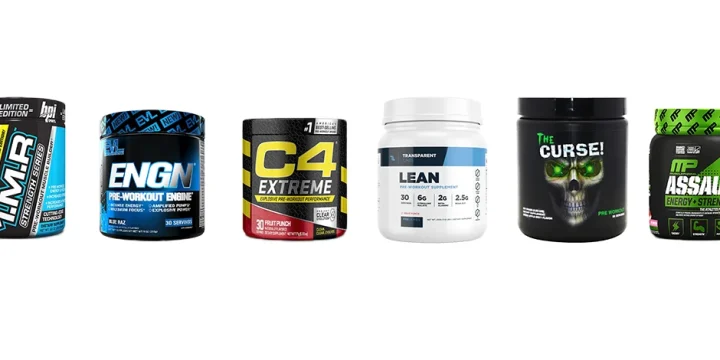As a fitness coach, I’m a huge supporter of tofu, a nutritious food made from condensed soy milk.
It's an excellent source of protein, vitamins, minerals, carbohydrates, and essential amino acids, all vital for a healthy body. Tofu has been a staple in diets for thousands of years, and its popularity continues today.
What I appreciate about tofu is its low calorie count, making it a fantastic choice for clients of all ages.
Both scientific research and personal experiences, including my own, highlight its health benefits.
In this article, we'll explore these advantages further.
Quick Summary
- Tofu, made from soybeans, water, and a coagulant, is a balanced natural food with a rich nutritional profile, including protein, vitamins, and minerals.
- A half-cup serving of tofu contains only 94 calories and 10 grams of protein, making it an ideal food for weight management and health-conscious diets.
- According to a review from Nutrients, eating tofu may help significantly reduce your risk of developing diabetes.
- In my personal opinion, tofu's versatility and health benefits make it an excellent addition to any diet, particularly for those seeking plant-based protein sources.
What Is Tofu?
Tofu (also called bean curd) is a food product made from soybeans, water, and a coagulation agent — more specifically, soybeans ground into soy milk.
To make tofu, fresh soy milk is curdled so that the proteins become coagulated, pressed into solid blocks, and then cooled down in a very similar process to how dairy cheese is made from curdled milk (see our guide on dairy health benefits here).
Though the vast majority of tofu produced in the United States isn't fermented, a large amount of international tofu is fermented before eating.
According to The Health Board, the free radical-scavenging activity in fermented tofu might be healthier to eat than regular coagulated varieties [1].
Today, the worldwide tofu industry has grown enormous, with over 200,000 tofu manufacturers worldwide. The biggest factories are located in Japan, where they make over fifty tons of the bean curd every day.

Tofu Nutrition Facts

When it comes to looking at tofu as a natural health food, I believe there's a lot to like.
In fact, it is one of the most perfectly balanced natural foods available, so long as you mind your portions.
Coming in at just 94 calories per half-cup serving, tofu will never wreck your diet, and the 10 grams of protein will keep you full for hours.
With all that protein, you get no cholesterol and only trace amounts of carbs (naturally gluten-free), meaning your low-carb diet won't be ruined.
But that's not all you get from this curdled bean. In fact, one serving of tofu will satisfy 44 percent of your daily calcium intake, 40 percent of your iron, and 9 percent of your magnesium.
It also contains trace amounts of valuable nutrients like:
|
|
Soy, the main component of tofu, is a natural source of a complete dietary protein, which means you don't have to combine it with any other substances in order to get the body-building benefits.
5 Health Benefits of Tofu

I love tofu not only as a source of protein for vegetarians and vegans but for its many benefits.
Some of the specific benefits of adding this soy product to your diet are explained below.
1. Reduces Risk of Diabetes
Tofu is a perfect food option for diabetics because of its low-fat and low-calorie content.
A meta-analysis in Nutrients found that the highest soy consumption, including tofu, decreased the risk of Type 2 Diabetes by 17% (TRR = 0.83, 95% CI: 0.74–0.93) compared to the lowest consumption [2].
2. Lowers Risk of Heart Disease

Did you know that eating tofu may lower your risk of developing heart disease?
Intake of tofu, rich in isoflavones, was associated with a lower risk of coronary heart disease in a study involving 74,241 women and 42,226 men, suggesting its potential benefits in heart health [3].
"Compounds in tofu appear to protect against illnesses such as heart disease, diabetes, and even certain types of cancer. In addition, this soy food may promote brain and bone health and have several other benefits."
- Marie Lorraine Johnson, MS, RD, CPT, an outpatient dietitian at Bright Sky Nutrition
3. Helps Prevent and Treat Obesity

When eaten as part of a reduced-calorie diet, I've found that tofu is an easy way to lose weight.
In fact, there is evidence that soy protein can make a bigger difference in weight loss than other types of protein, as some studies have shown that people who got their protein from soy lost more body fat than those who relied on animal-based sources [4].
Here are some of our favorite soy protein powders.
"A diet that contains a variety of plant-based foods such as tofu appears to contribute to overall health and wellbeing, and a lower risk of conditions such as obesity, diabetes, and heart disease."
- Natalie Olsen, RD, LD, Medical News Today
4. Reduces Risk of Breast and Prostate Cancer
Tofu contains lots of selenium, which is a mineral that the body needs to run its antioxidant-processing system and help prevent colon cancer.
In fact, studies have shown that men can reduce their risk of prostate cancer by eating tofu, and women who eat plenty of it every week are over 60% less likely to develop the kinds of risky breast tissue that often cause breast cancer [5].
5. Relieves Symptoms of Menopause

Tofu contains isoflavones, which are plant-based compounds that mimic the effects of estrogen.
The isoflavones in tofu may help reduce hot flashes and night sweats that many women have during menopause [6].
Myths About Tofu

Despite some criticism of tofu's soy content and estrogen mimickers, it's crucial to distinguish between highly processed soy products and tofu, which is closer to its natural form.
My personal experience aligns with studies highlighting tofu's health benefits, emphasizing its superior reputation compared to more processed soy forms.
Here are some myths about tofu and the actual facts.
1. Eating Tofu Causes Cancer

Some scientific evidence reveals that eating tofu might actually cause the development of breast cancer in some women [7].
The study that caused this controversy looked at a specific type of breast cancer that's based on estrogen receptors, and early studies found an increase in tumor growth in rats fed soy.
However, further research revealed that rats metabolize soy differently than humans, so the overall impacts aren't known.
It does seem clear that there is a correlation between the level of processing in soy and the risk of tumor development, so to be safe, you should stick to minimally processed soy foods like tofu.
2. Tofu Causes Thyroid Health

The role that tofu plays in thyroid health has been debated endlessly, and there is evidence on both sides for its benefits and negative effects on your thyroid.
At this point there are still more questions than answers, but if you have thyroid problems already it might be smart to limit your tofu intake.
3. Genetically Modified Soybeans
At this point, about 93% of the soybeans grown in the US are GMOs, which is one of the reasons why soy is so cheap. However, this lower price point might come at a high cost [8].
There is lots of controversy about the effects of eating GMO foods because not enough research has been conducted to prove that they are completely safe. At this point it's been noted that soy allergies increase with GMO soy and that there are potential negative impacts to the liver (at least in mice and rats).
For this reason, many people prefer to avoid soy products completely unless they can be sure that they have been grown organically.
4. Feminization in Men
There are long held beliefs and plenty of anecdotal evidence that consuming soy can cause men to 'feminize' through the loss of a sex drive and the growth of breasts due to the increased estrogen activity in the body.
However, the medical literature on this topic doesn't seem to reach this conclusion and instead regulates the feminizing qualities of soy products to myth status.
The research that HAS shown feminization in men due to soy only occurred when men drank soy milk every day.
There seems to be little risk of feminization through eating tofu, possibly because of the fermentation properties that the soybeans go through [9].
Though there are reasons that men suffering from erectile dysfunction should avoid all soy products, for the vast majority of men the healthy benefits of occasionally eating tofu far outweigh any negative health impacts.
References:
- https://www.thehealthboard.com/what-is-a-free-radical-scavenger.htm
- https://www.mdpi.com/2072-6643/15/6/1358
- https://www.ahajournals.org/doi/10.1161/CIRCULATIONAHA.119.041306
- https://www.ncbi.nlm.nih.gov/pmc/articles/PMC1838825/
- http://cebp.aacrjournals.org/content/13/12/2277
- https://www.mountsinai.org/health-library/supplement/soy
- http://www.breastcancer.org/research-news/soy-may-turn-on-genes-linked-to-cancer
- https://www.ers.usda.gov/data-products/adoption-of-genetically-engineered-crops-in-the-u-s/recent-trends-in-ge-adoption/
- https://www.fertstert.org/article/S0015-0282(10)00368-7/fulltext
About The Author
You May Also Like







Thanks for another excellent post. Where else could anyone get that kind of information in such a perfect way of writing?I’ve a presentation next week, and I am on the look for such information.
I like how you explain both the health benefits and side effects of tofu. I’m really not into soy foods because I know tofu is genetically modified (I avoid these). Gotta be more strict with my soy consumption.